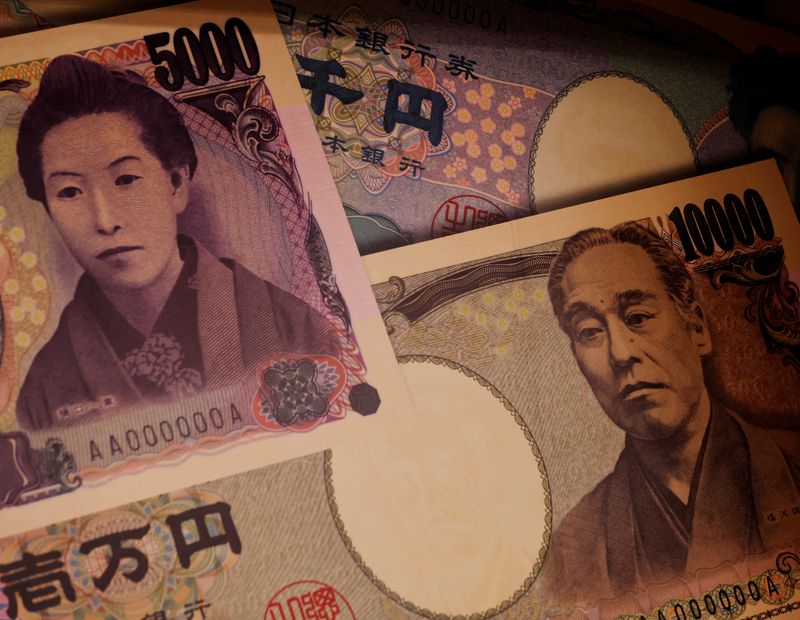By Rae Wee and Tom Westbrook
SINGAPORE (Reuters) - Japan's era of negative rates may be over, but some investors are convinced that low rates are not, meaning bets against the yen are back despite the Bank of Japan's first hike in 17 years.
While the BOJ move at Tuesday's policy meeting marked a monumental shift, it stuck to its dovish tones and said it expects to maintain "accommodative financial conditions".
That sent traders scurrying back into popular yen 'carry trades', driving an already battered yen yet lower.
"Japan still remains the lowest interest rate among the G10," said Shafali Sachdev, head of investment services, Asia at BNP Paribas (OTC:BNPQY) Wealth Management.
"So, with event risk out of the way this is almost seen as an opportunity to re-enter carry positions."
In a carry trade, an investor borrows in a currency with low interest rates and invests the proceeds in a higher-yielding currency. A 3-month dollar-yen carry trade can earn as much as 5% on an annualised basis.
The rush to borrow yen for carry trades was clearly reflected in Wednesday's price action.
The yen slid to its weakest in four months against the dollar, a 16-year low against the euro and its lowest level against sterling since 2015, extending its fall from the previous session.
GAPING YIELDS
Some of the yen's decline came on the back of a 'sell-the-fact' trade, given how BOJ Governor Kazuo Ueda, unlike his predecessor Haruhiko Kuroda who had a shock-and-awe approach, had prepared investors for a potential move.
"What would have been quite seismic announcements historically were in the end quite muted, given what had already been leaked to the markets over the last few days," said Charles Hepworth, investment director at GAM Investments.
Moreover, there is still a yawning gap between rates in Japan and those in other developed economies. The U.S. Federal Reserve's main policy rate stands at 5.25-5.5%, and those in other major economies also remain above 4%.
That stark differential keeps the yen carry trades in favour, and in turn the currency under pressure. The currency has slid 16% against the dollar from a peak in January 2023.
"The big pairs continue to be versus the dollar, versus the Aussie, versus the kiwi... These are more shorter-term trades where the carry is in your favour," said BNP Paribas' Sachdev.
And with volatility relatively low and the Fed unlikely to commence its rate easing cycle anytime soon, it is easy to see why investors are eager to amass yen-financed positions.
Three-month dollar/yen implied volatility, a measure of the cost of options contracts that traders use to hedge positions, is near its lowest level in about three months.
Market expectations for a first Fed cut in June have also been scaled back after a run of data pointing to still-sticky inflation in the world's largest economy.
"Any time the Fed and the BOJ are moving policy settings at about the same time, it's always the Fed that rules and dominates the price action," said Gareth Berry, FX and rates strategist at Macquarie Group (OTC:MQBKY).

HSBC analysts think yen selling will eventually abate, around when the Fed starts cutting rates. If the dollar falls and the yen appreciates, then the yield on yen carry trades will be eroded.
But for now, even a landmark policy pivot from the BOJ has not been able to turn the tide in the yen's favour.